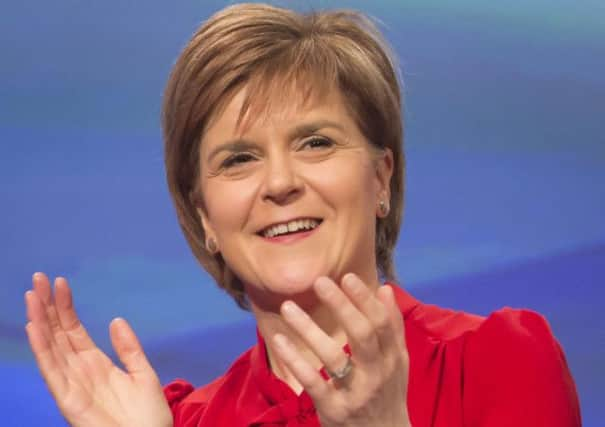The messy birth of seven party politics - and I agree with Nicola


But for all its myriad flaws the debate was a quiet triumph for the new era of multi-party Britain and marked the night when Nicola Sturgeon joined Nigel Farage as a credible threat to the status quo.
The SNP leader’s performance will be the talking point. Measured, considered, warm, even maternal at times, she cut a figure of genuine leadership, emboldened by the fact that her party will most-likely hold the keys come May.
Advertisement
Hide AdAdvertisement
Hide AdLeanne Wood and Natalie Bennett’s first proper introduction to the public at large appeared a baptism of fire, with the latter often appearing like the child hoping the teacher won’t call on her to answer in class.
There were moments of hostility: Nigel Farage waving his arms and exclaiming “we haven’t balanced the books” and an audience member who heckled David Cameron on his record on ex-servicemen and women.
Ed Miliband, as was inevitable, launched a stinging attack on Cameron’s record on the NHS and the EU, pouring scorn on the Prime Minister’s claims that he renegotiate the EU settlement for the betterment of Britain.
And could he have said the words “I” and “Prime Minister” in the same sentence more? Hell, no.
Advertisement
Hide AdAdvertisement
Hide AdMeanwhile, Clegg showed flashes of the man who won the nation’s hearts in 2010, firmly in the centre ground.
It wasn’t all Socratic dynamite. It was a bitter irony that the portion dedicated to issues affecting Britain’s youth was the most torpid, collapsing into a mire of acronyms and stats.
In what all parties continually tell us is the most important election for a generation, the only chance we will get for all the main party leaders to go head-to-head has been and gone.
And this time, the refrain in the air is “I agree with Nicola”.